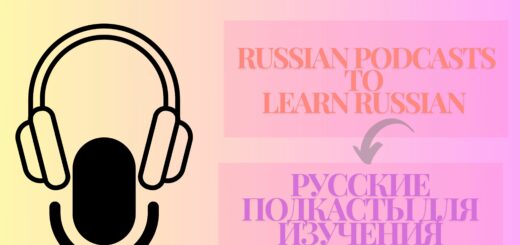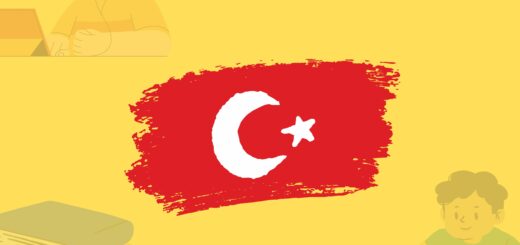Best Language Resources to Learn a New Language (Updated 2024)
If you talk to a man in a language he understands, that goes to his head. If you talk to him in his own language, that goes to his heart.
Nelson Mandela
I am sure you also agree with this statement: when we talk to someone in their own native language, it helps make a deeper connection. In fact, this is why companies are hiring people who know a second language. When I started my language-learning journey with Spanish, I was really confused about how to do that. I had no clue what language resources were. But now, after learning so many languages, it’s easy for me to tell which ones to choose.
You may also have similar confusion. Trust me, I have been in your shoes. Thus, I know how it feels. Don’t worry; I will help you to find some resources to learn the language.

What are language resources?
Every time, I tell my friends that I am learning a new language, the first question they ask is what language resources are you using? I am sure you must have been asked that several times. what are they? Simply put, everything that helps learn a language is a language resource. But if we think of a more technical meaning, it is something that provides material to improve and give linguistic knowledge. It can be anything data, advice, tools, etc. As language learning is becoming common in the present world, Language resources are greatly increasing. Let me share some important resources to learn a particular language.
Types of Language Resources
There are multiple language resources available online and offline. However, most of us still could not find the right resources to learn a language. Here are the most common language resources to choose from-
1. Books
Books have been an important part of the language learning process. It was there when no platform taught it. Thus, not to mention it in this guide, will be a big disrespect to them. There are multiple books available in the market. Which one to choose is always confusing. Here is what I do while selecting one. In the absolute beginner stage, choose a book that gives you translations in the native language. Make sure that are the basics of the language. It makes your job easier.
After Coming out from the beginner stage, I try to choose books that have translation but have a little difficult level. In my final stage, I avoid choosing the one that has translations. It helps a lot in my learning. There is no doubt that books are becoming costlier every day. Here is a trick for it. Either buy them from second-hand stores or get pirated books at half or lower prices.

Important: Usually language books don’t add much to your future. In such a scenario, try to get them on a rented basis. Take the help of Chegg to do that.
Here are the lists of books that I have already created to learn different languages-
- Books To Learn the German Language
- Books to Learn the Italian Language
- Books For Learning the Tagalog Language
- Books to Learn The Arabic
- Books to Learn the French Language
- Books to Learn the Swedish Language
2. Podcasts
What is the best way to get the pronunciation right? It’s by hearing native speakers. Podcasts are a great tool to do that. There is an exchange of thoughts between two native speakers discussing the same topic. But do you know, with the growing trend of learning a new language, there is an increase in podcasts teaching it? In fact, there are podcasts for beginner level. I know it’s really awesome. But hold on, there is another thing to add on. There are websites just to produce the podcasts.

Again I have created separate lists of podcasts for different languages-
- Podcasts to Learn Arabic
- Intermediate-Level Spanish Podcasts
- Chinese podcasts to learn Chinese
- Korean Podcasts to learn Korean
- Russian Podcasts to Learn Russian
- Italian Podcasts to Learn Italia
- Japanese Podcasts to Learn Japanese
3. Online Communities
Online communities are the ones where you can post any doubt related to a language. Once I posted a query for the Spanish podcasts. I got so many recommendations for it. Some were good. Reddit and Quora are the two most amazing online communities I have ever used. Not only doubts related to a language can be published, but anything can be asked about it. You can even make some online language exchange partners from this app.
4. Videos
Youtube is a hub of videos. Earlier it was only for entertainment purposes but now it is for learning purposes also. There are a lot of videos that can help you to learn a language. Each language has multiple videos to learn from. The videos are based on different aspects of the language. You can either find a list of vocabulary words or videos for grammar basis. In fact, there are many podcast channels on YouTube to help you.

5. Language learning app
In the world of language learning, there are multiple online learning platforms. Each app is known for its own teaching style. I always try to choose one that matches my learning style. Here are different approaches for developing learning platforms-
a. Gamified approach
I think it is the best approach to teaching a new language to a person. There are a lot of platforms that work on this approach. The platforms that follow the Gamified approach keep you engaged with the lessons on the platform. It has multiple exercises, built in a way that you are playing games in it. Some platforms that follow a gamified approach are-
- Duolingo – All the exercises are created in a manner that looks like you are playing a game. Each task gives you some rewards like gems and XP.
- LingoDeer – It also has engaging exercises and features that can be earned with each task you complete. The travel Phrasebook is like my travel partner.
- Busuu – It also works similarly to the above two apps. However, the biggest drawback of using this platform is the availability of only 14 languages.
b. Flashcard approach
I always say that language learning is incomplete without the flashcard approach. Flashcards are the approach through which you learn the meanings of new words. The style of including them is different. Some give translations, others may have a pictorial representation of meanings. Here are some platforms that follow the flashcard system-

- Memrise: It is a popular Flashcard platform that helped me practice the words more often. Not only there are pre-made decks, but I could make my own one. Anki: Anki is a platform that follows a similar approach to Memrise. There are pre-made decks to use. In fact, I get the Duolingo Norwegian vocabulary list from it with the help of the Memrise platform.
- Quizlet: Although it is an app that is created for all subjects, I used it to learn Spanish. But I would suggest you take a look at it if you are going out for a competitive exam.
- Drops: The way drops work is different from the above resources. In the free version of it, I could only use it for 5 minutes. To study more than 5 minutes, it requires the subscription plan. There were pictures on the flashcards with their meanings. Click on it and get the meaning of it. Also, if you are a visual learner, it is a perfect choice for you.
b. Audiobased approach
This is the best option for those who cannot make long-term commitments to language learning. Despite being passionate about learning a new language, I could not get much time. In such a situation, the platforms that follow such an approach always save me. Some platforms that follow a similar approach are-
- Pimsleur: Pimsleur is an app that is well-known for this approach. The lessons are created in a way that is based on audio recordings of native speakers. They were also arranged based on the levels of the learner.
- Rosetta Stone: Another platform that follows the audio-based approach is Rosetta Stone. However, there is a special feature on this platform known as live classes. I think it is perfect to learn a new language. There are few students in the class. The tutor could give attention to each student.

c. Live Teaching classes
Most of the students fail to attend offline classes just because of a lack of free time. Online Live classes have made it possible to study the subject in free time by a tutor. Most such apps allow us to filter the search results, either based on teaching experience, pricing, etc. Although, I have used rosetta stone for live classes, here are a few other options that helped me to learn my language-
- iTalki: iTalki has become the most popular language-learning platform when it comes to live to learn. Multiple languages have different tutors. It has given chance to everyone who wants to teach. If you are on a tight budget or a beginner, try using community tutors. I used it to learn Japanese at an advanced level, I chose professional tutors.
- Babbel live classes: Babbel is the oldest running platform to teach a new language. Although it is a course-based platform, it also provides live classes. The live classes work like Rosetta Stone. There are few students in each group, giving more attention to the users.
- Preply: The tutors on this platform are also awesome. In fact, I formed very strong relationships with two tutors. They were really friendly towards me. It works similarly to iTalki. However, the only difference between them is that all teachers are considered equally. There is no division on the basics of experiences.
d. Language exchange programs
Language exchange programs are where we find partners to practice the language with. It can be a native male or female, based on your preferences. These apps basically analyze your data and get results based on it. Suppose you want to learn Japanese and a native Japanese person wants to learn your language, that person will be on your suggestion list. Most of these platforms are free to use, but there is always a limitation on it. Here, are some platforms that I always look for-

- HelloTalk: HelloTalk was the first such platform I used in my life. It’s like a social media platform where you can make new friends and get help from them. As mentioned above, I entered my details and received suggestions based on them. There were two main features that I got with it – translations and auto-corrections. However, the free version restricts us, from unlimited translations.
- Tandem: I would not say much about it. The working of Tandem is exactly the same as HelloTalk. However, a feature that I want you to know, is the one where you can find a partner near the area where you live. It is the feature that comes with the subscription plan. However, don’t try to use it. Most people misuse this feature and use it like a dating app instead.
- Speaky: Speaky is another such platform with a huge community. The only reason I like it is because there are people of all ages. When I created my account, I got instant requests from multiple users. Of course, it was annoying. However, there was an option to restrict the message requests. Another drawback is the limit on translations. I could have only 5 translations in a day which were very less.
e. Websites for video courses
Many apps provide you with recorded video lectures for learning a particular language created in the form of a course. Some websites give such courses freely, others might take subscription plan for it. Here are some such websites that provide us with such courses-
- Udemy: I’m sure you must have heard about it at least once in your life. It’s the hub of video courses for various subjects, not just languages but also topics like coding, finance, and more. It also provides certificates of completion for paid courses. Even if you are on a tight budget, there are many free courses, to learn something new.
- Coursera: Coursera is another popular platform to learn something new. It’s the platform that not only helped me learn the language but also helped me to learn multiple other things. The platform is again like a hub of courses for different topics. I remember, how much Spanish vocabulary I learned from it.

I have discussed how online apps are created to teach you languages. However, wouldn’t it be beneficial for you if I provide lists for different languages? Of course, it will make your task easier. Therefore, I am adding links below where you can find the apps that I used for learning different languages:
- Top 10 Apps to Learn the Latin Language
- Best Apps for Learning Russian
- Best Apps to Learn Portuguese
- Best Apps for Learning Spanish
- Best Apps to Learn French
- Best Apps to Learn Arabic
- Best Apps to Learn Chinese
- Apps to Learn the Croatian Language
- Best Apps to Learn Japanese
Remember, these are the common Language resources that can help you achieve your desired goal. Choosing the right platform is very important. Thus, make sure to understand which approach suits you, before choosing an app.
Conclusion
Language learning is a tough task. There are a lot of things to consider, from setting daily goals to choosing the right language resource; everything is important. Therefore, I have shared the most important resources with you. Each resource offers multiple options to choose from, especially the apps. Make sure to choose the approach that best suits you.
I hope this guide will make your language learning journey easier. If you still have doubts or want to add something new, please let us know in the comments section.
FAQs
What are the examples of language resources?
A few examples of language resources are-
Duolingo
Rosetta stone
iTalki
Podcasts
Babbel


